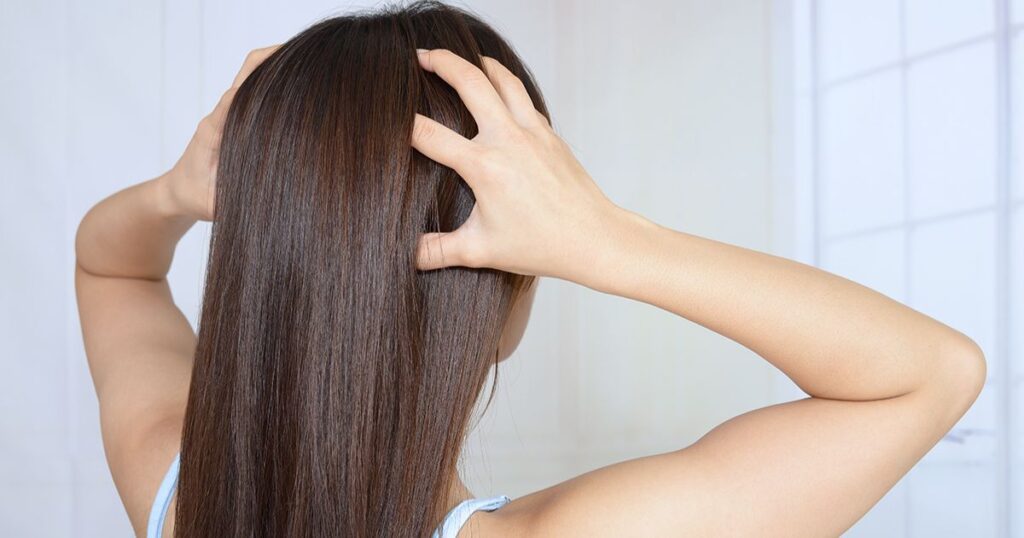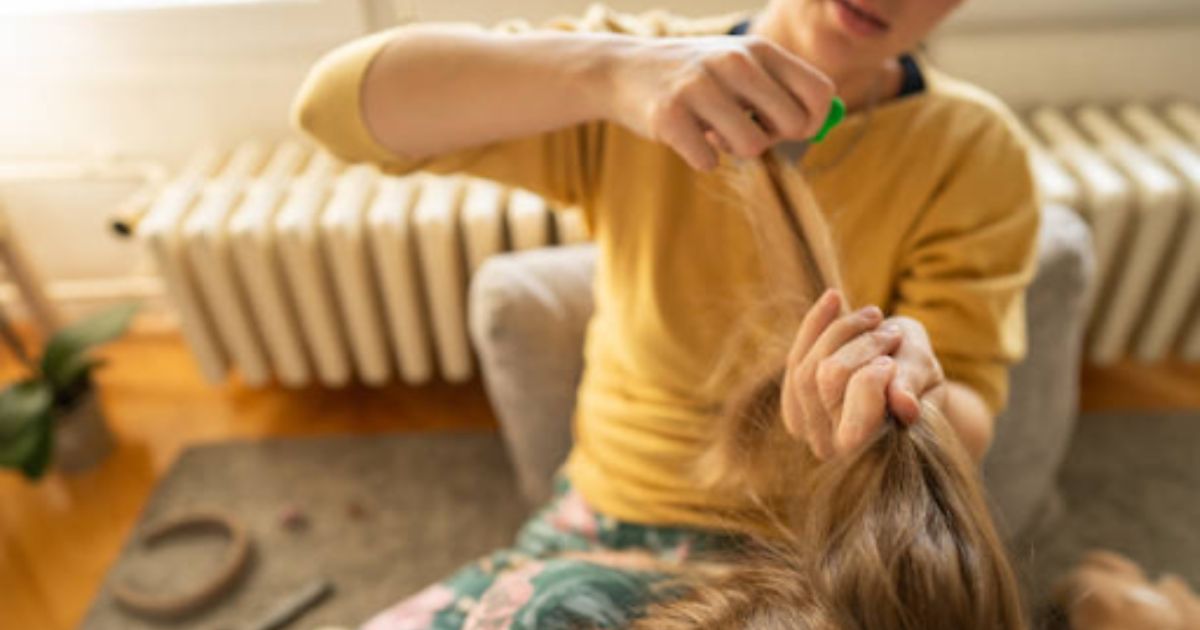Head lice, those tiny, wingless insects that thrive on human scalps, have long been the bane of many households, especially in environments where close contact is frequent. While head lice are typically associated with specific conditions, an intriguing question arises: Can stress cause head lice?
It is certainly a topic worth discussing since Americans are more stressed out than ever. If stress does contribute to head lice, we certainly need to know about it. In this head lice article, we delve into the complexities of head lice infestations, the potential link with stress, and effective strategies for lice treatment and prevention.
Table of Contents
Some Quick Info on Head Lice
Understanding a bit more about head lice is crucial before exploring potential connections with stress. Head lice are parasitic insects that primarily infest the human scalp, feeding on blood. Contrary to common misconceptions, lice are not a result of poor hygiene; they spread through head-to-head contact. The presence of head lice is often characterized by itching, red bumps, and the visible presence of lice or their eggs (nits) on the hair shaft.
Expanding on this, it is important to note that head lice have evolved to be highly adapted to the human environment. Their tiny size and specialized claws enable them to cling firmly to hair strands, making transmission more likely in environments where close personal contact is common.
Dispelling Myths About Lice Transmission
Dispelling myths about lice transmission is essential to fostering accurate awareness. While head lice are highly contagious and can spread through direct head-to-head contact, they do not jump or fly. Transmission typically occurs in close-knit environments such as schools, daycare centers, and households, where individuals are in frequent contact.
Further, it is crucial to emphasize that lice do not discriminate based on cleanliness. Anyone, regardless of their hygiene practices, can become infested with head lice. This dispelling of myths contributes to creating a more informed and empathetic environment when addressing lice infestations.

Can Stress Cause Head Lice?
The potential link between stress and head lice is a subject of curiosity. While scientific evidence directly correlating stress with an increased susceptibility to head lice is limited, some theories suggest that stress may indirectly contribute to lice infestations.
Stress weakens the immune system, making individuals more susceptible to various health issues, including lice. Additionally, stressed individuals may engage in behaviors such as excessive scratching, which could increase the risk of lice transmission. Moreover, chronic stress can compromise the body’s immune response, potentially making it more challenging to fend off external threats like lice.
Stress-related behaviors, such as constant head scratching, not only contribute to the discomfort associated with lice but may also facilitate the transmission of lice to others. While experiencing high levels of stress individuals can also be distracted and may unintentionally expose themselves to head lice or fail to use best practices to avoid head lice.
This could include forgetting to check their children’s scalps weekly for head lice or wearing their hats or scarves without washing them first. However, it is important to note that these are all indirect causes, and there is no direct link between stress causing lice.
Simply put, the answer to “Can stress cause head lice?” is no, however, it can make you more susceptible to an infestation.

The Importance of Professional Lice Treatment
Regardless of the potential connection with stress, prompt and effective lice treatment is crucial once an infestation is detected. Over-the-counter and prescription lice treatments, such as shampoos and lotions, are commonly used to eradicate lice. However, the rise of resistant strains emphasizes the need for thorough and meticulous lice removal methods, including the use of fine-toothed lice combs.
Expanding on this, it is essential to highlight the importance of following treatment instructions carefully. Incomplete or inconsistent use of lice treatments can contribute to the development of resistant lice, making the eradication process more challenging. Additionally, manual removal of both live lice and nits using specialized combs remains a critical step in ensuring a comprehensive and lasting solution.
For more effective lice treatment and peace of mind, visit a lice removal clinic near you to schedule a professional lice treatment. These lice specialists use the latest lice removal technology and techniques, and the success rate is far higher than any home treatment.
Head Lice Prevention Strategies
While it is critical to understand how to treat lice, it is better to learn how to avoid head lice in the first place. Preventing head lice infestations therefore involves a multifaceted approach, with an emphasis on awareness and proactive measures. Key strategies include:
Teaching Kids About Lice Prevention
Raising awareness about lice transmission, debunking myths, and promoting hygienic practices are essential components of lice prevention. Especially among young children, who are the most vulnerable to rapidly spreading head lice infestations.
Further, routine head checks, especially in high-risk environments, contribute to early detection and timely intervention. If children are aware of the problems with head lice, they are more likely to report any itching or bumps that could be symptoms of head lice.
Stress Management and Head Lice Prevention
While the direct link between stress and lice is inconclusive, promoting stress management techniques can have broader health benefits, potentially reducing susceptibility to various health issues. Individuals who manage their stress are far less likely to be distracted or make an absent-minded decision that accidentally brings home unwanted guests like head lice.
Does Personal Hygiene Make You Less Susceptible to Head Lice
Encouraging individuals to avoid head-to-head contact, not sharing personal items like combs and hats, and tying long hair can minimize the risk of lice transmission. Regular cleaning of personal items, bed linens, and shared spaces also helps eliminate stray lice and reduces the risk of re-infestation. However, your personal hygiene does not make you more or less likely to get head lice. Poor hygiene is not a factor in contracting lice, anyone can get them regardless of their personal hygiene.
Expanding on these lice prevention strategies, education plays a pivotal role in preventing the spread of lice. School programs, community workshops, and informational campaigns can equip individuals with the knowledge needed to identify risk factors and implement preventive measures. Stress management, although not a direct preventive strategy, contributes to overall health and resilience, potentially reducing vulnerability to health issues like lice.

The Role of Mind-Body Connection in Lice Prevention
Although the direct correlation between stress and head lice remains uncertain, understanding the mind-body connection is crucial. Stress management not only contributes to overall well-being but may indirectly impact the immune system’s resilience against various health challenges, including lice. Encouraging a holistic approach to health, which includes stress reduction practices, can be beneficial for both individual well-being and potential lice prevention.
Building on this, holistic health practices encompassing mindfulness, relaxation techniques, and stress-reduction activities may contribute to a healthier overall immune response. While these practices may not have a direct impact on preventing lice infestations, they can create a more robust foundation for general well-being and recovery if you do unfortunately contract lice.
Addressing the Psychological Impact
Beyond the physical discomfort, a head lice infestation can have psychological repercussions, especially in children. The stigma associated with lice can lead to anxiety and stress. Addressing the psychological impact involves open communication, destigmatizing lice infestations, and fostering a supportive environment.
Further, open communication at home and in educational settings is crucial in reducing the stigma associated with lice. Creating an environment where individuals feel comfortable discussing lice infestations facilitates early detection, prompt treatment, and a more positive overall experience for those affected.
Effective Professional Head Lice Treatment Near Me
At The Lice Clinics, we take pride in being your dedicated partners in lice treatment. Utilizing state-of-the-art technology, we ensure a non-toxic and efficient solution to eliminate lice and their eggs. Our team of skilled professionals goes beyond treatment, offering personalized plans to prevent re-infestation.
Our team is here to help educate you about head lice and answer any questions that you may have about head lice. Hopefully, you better understand the answer to your question “Can stress cause Head Lice?”
We understand the emotional toll of lice infestations, especially for children, and provide a supportive environment that includes education, destigmatization, and emotional guidance. From meticulous removal with professional lice combs to valuable insights on preventive measures, we stand by you throughout the entire process. At The Lice Clinics, we are not just treating lice; we are dedicated to your well-being and peace of mind.
Reach out to one of our lice removal experts to learn more about head lice treatment options.
